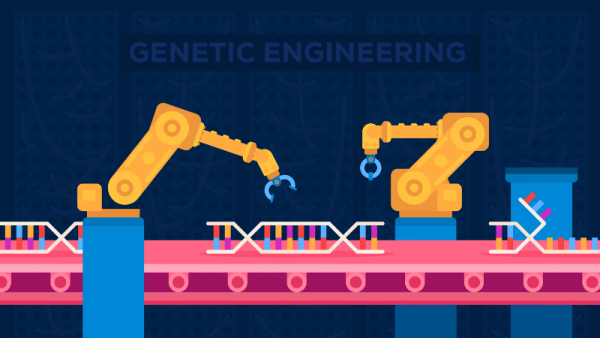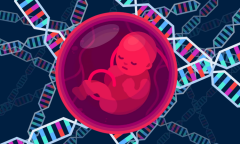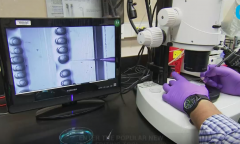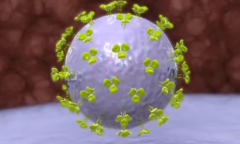By KM Diaz, | May 30, 2017

CRISPR-Cas9 editing technology has been used in some clinical trials to understand the role of genes in disease. (YouTube)
CRISPR-Cas9 can introduce hundreds of unintended mutations into the genome, according to the new study published in the Nature Methods.
The co-author of the study, Stephen Tsang, MD, Ph.D., said that the scientific community should consider the possible risks of all off-target mutations brought by CRISPR, like mutations in non-coding regions of the genome, as well as single nucleotide mutations.
Like Us on Facebook
CRISPR-Cas9 editing technology has been used in some clinical trials to understand the role of genes in disease. The method raised hope for scientists to develop powerful gene therapies to repair or delete genes, not only adding new genes.
China has already started the first clinical trial of CRISPR, while the trial in the United States is expected to start next year. Although CRISPR precisely targets particular DNA strands, it sometimes strikes different portions of the genome. Most studies use computer algorithms to search for off-target mutations to recognize parts that are most likely to be affected and then they will examine these parts for insertions and deletions.
Predictive algorithms do a good job upon performing CRISPR in tissues or cells in a dish, but the entire genome sequencing has not been used to view all off-target impacts in living animals, says Alexander Bassuk, MD, Ph.D., the other co-author of the study.
In the study, the research team sequenced the whole genome of mice went to CRISPR gene editing to observe for all mutations, like those altered a single nucleotide. Researchers discovered that CRISPR corrected a gene that causes blindness.
However, co-author Kellie Schaefer, a Ph.D. has found that two independent gene therapy in the recipients' genome sustained more than 100 larger insertions and deletions, as well as more than 1,500 single-nucleotide mutations. These DNA mutations were not identified by computer algorithms.
Dr. Tsang said that researchers who are not employing entire genome sequencing to detect off-target effects could have missed the potential and important mutations, and a single nucleotide mutation can create a huge impact.
Currently, the research team is working to enhance the CRISPR to raise the effectiveness of editing. The finding could also encourage other researchers to use whole-genome sequencing method to discover all off-target effects of CRISPR techniques, Dr. Tsang noted.
-
Use of Coronavirus Pandemic Drones Raises Privacy Concerns: Drones Spread Fear, Local Officials Say

-
Coronavirus Hampers The Delivery Of Lockheed Martin F-35 Stealth Fighters For 2020

-
Instagram Speeds Up Plans to Add Account Memorialization Feature Due to COVID-19 Deaths

-
NASA: Perseverance Plans to Bring 'Mars Rock' to Earth in 2031

-
600 Dead And 3,000 In The Hospital as Iranians Believed Drinking High-Concentrations of Alcohol Can Cure The Coronavirus

-
600 Dead And 3,000 In The Hospital as Iranians Believed Drinking High-Concentrations of Alcohol Can Cure The Coronavirus

-
COVID-19: Doctors, Nurses Use Virtual Reality to Learn New Skills in Treating Coronavirus Patients










